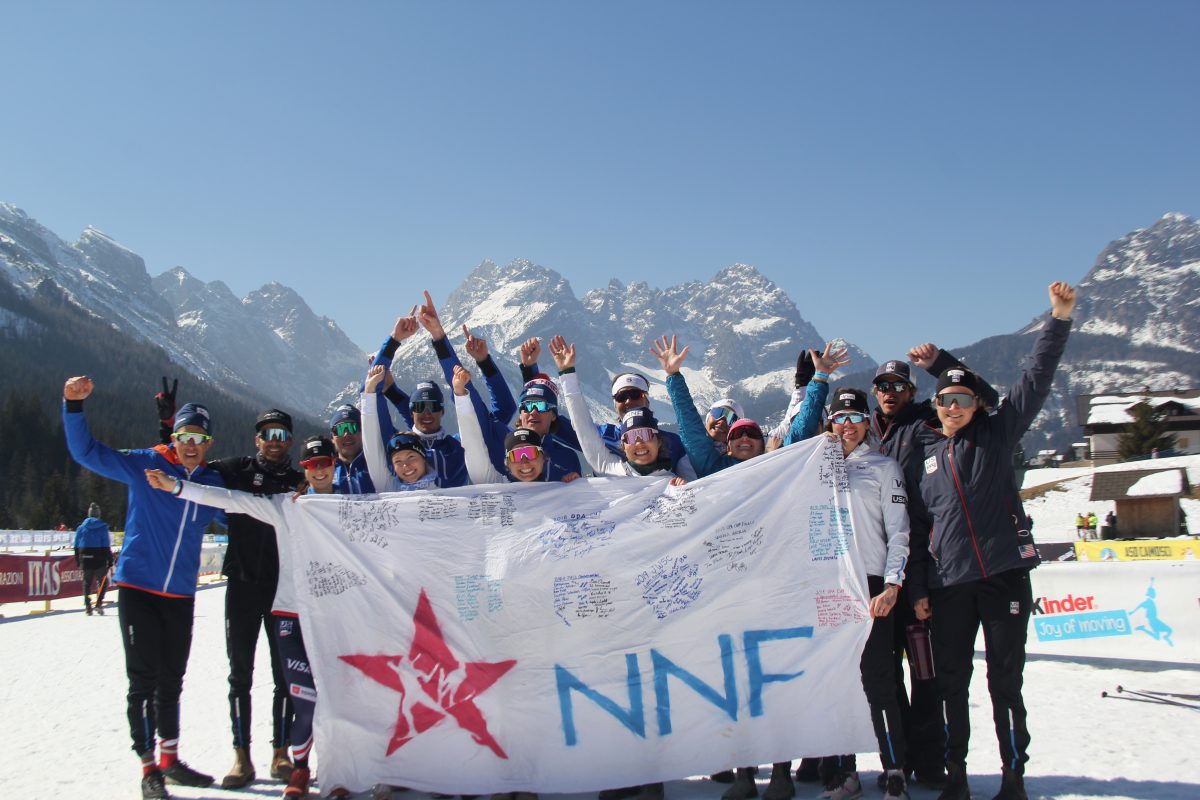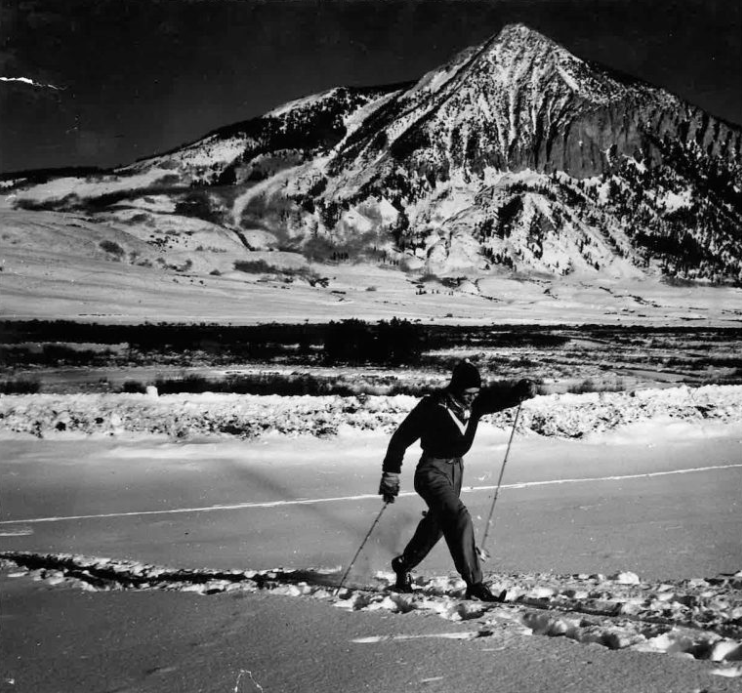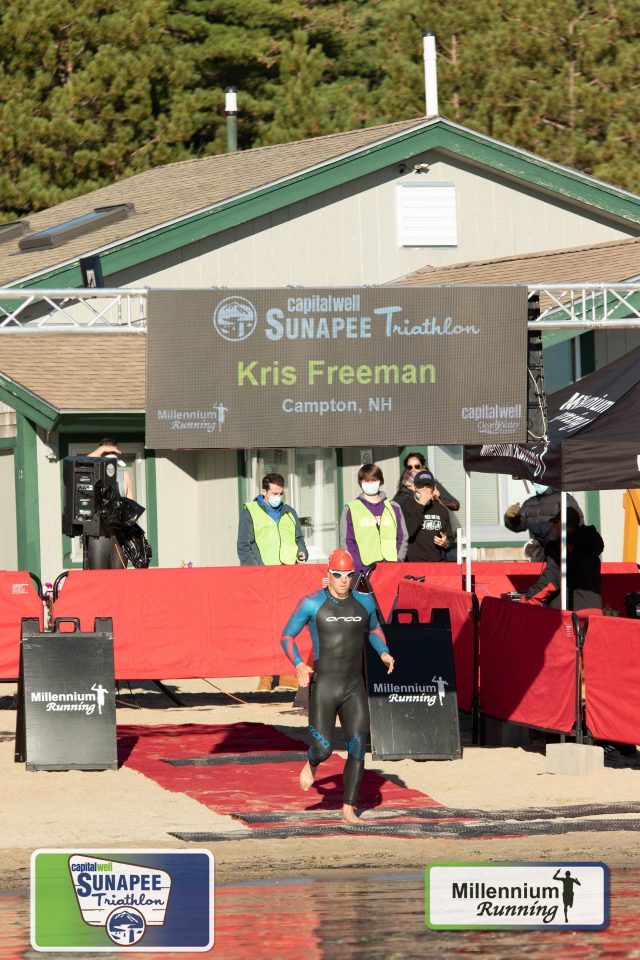
“I train because I like to race but I also train because I enjoy it, so I never took a pause,” said Kris Freeman from his New Hampshire home. That’s straight-up Freeman. Focus. Intensity. A plan. Even during COVID.
Let’s face it, enjoying the process became a necessity for many as public sporting events have been mostly cancelled since mid-March. Six feet distant, mask-wearing, hand-sanitizing have become as much a part of our daily mantra as swim-bike-run has for triathletes. Last year we chronicled Freeman’s journey as he set a goal to improve as a triathlete. That he did. With incremental gains in the swim portion and his noted bike-run prowess, Freeman was a place away from auto-qualifying for the 2019 Kona Ironman World Championships. He was fourth in his age group at the Lake Placid Ironman – one spot out.
We’ll get to COVID-protocols in a bit, but Freeman was first able to compete in triathlon head to head -that’s in person- on August 29th in New Hampshire. It can be a dizzying array of travel restrictions and safety protocol between close proximity states — as in New England. But race they did. Scrolling through the results of the half-Ironman (70.3 miles total) Live Free and Tri, the event was well represented by New Englanders and a dab from outlying states.
Taking the win in 4:16:42 hours was Freeman.
Triathlons, with their complex logistics, trend towards capping field size. With the knowledge that premier races fill-up, athletes often register nearly a year in advance.
“I was planning on racing Lake Placid Ironman again this year and I registered last September, in 2019, for it. Which seems insane to register 10 months in advance for a race but it sells out,” said Freeman. “I did that for four different races and they were all subsequently delayed at first – even Lake Placid was at first delayed before they cancelled it. In fact, all the races I signed up in advance for were all initially delayed then cancelled. As we got towards the end of the summer a couple of different race organizers came up with ways of social distancing while hosting their races. I am still very cautious about COVID social distancing but I was comfortable with the precautions that the race directors set up.”
Along with his solo time trials and Strava segment duals since the pandemic, Freeman has raced two triathlons, including his August 29 win.
Staggered starts, reduced field size, were just some of the principle race day modifications for triathlon. With an eye towards the global arena, the official Ironman stance for safety adopted World Health Organization (WHO) guidelines and a five-point plan to foster safe in-person racing: “Enhanced Hygiene, Screening and Education, Density reduction, Touchpoint Minimization, Athlete self-reliance, —-these are the cornerstone of how Ironman attempts to come back on-line.”
In early September, the first official Ironman since March was held in Tallinn, Estonia. According to a New York Times piece, over 1500 participants entered with at least 50 countries represented. Although a commitment to compete in Estonia took considerable resources, small scale events could replicate the safety template stateside.
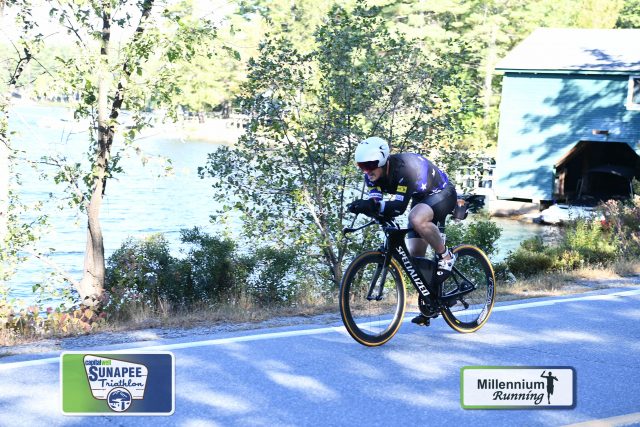
Freeman contested the Olympic distance Sunapee Triathlon on September 19. He placed second overall. But more to the point, he was able to race in a discipline in which he still feels he has room to improve. For a skier like Freeman, who was known for fastidious preparation, the many vagaries of triathlon suit his disposition. Along with his blood sugar management on race day, the three sport format offers him myriad opportunities for gear, nutrition, and training tweaks. And according to Freeman, time is on his side in the short-run.
“I am going to be 40 next month,” Freeman said. “From a triathlon standpoint, I have probably got one or more two years of getting faster before age makes me start getting slower. Part of the reason I like triathlon right now is I get faster until I am 42. If racing did not happen I still knew I was training towards something in the future. Like I was training for the next year.”
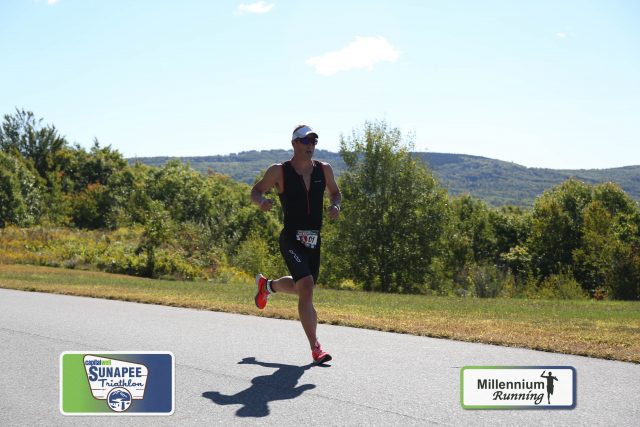
Along the way as he plans for races several years out, Freeman knows his diabetes makes him at greater risk to COVID complications.
“Having diabetes makes getting sick more difficult across the board: A cold has a profound impact on my blood sugar levels,” he said. “For one thing, exercising makes you more sensitive to insulin. And if you are sick you don’t exercise and so you become less sensitive to insulin. For sure I am a higher risk for complications than somebody who does not have diabetes. I like to think that I am one of the better-prepared people with diabetes but you never really know.”
As he continues to train and attempts, like many water sport athletes, to determine where and when to swim, he’s focused on simply maintaining a training plan, and keeping his fingers crossed that his window for speed in triathlon at a marquee Ironman event align. For those who have raced Freeman through the decades on the ski course, you’ll understand this: time seems to flow just a bit slower for Freeman.
Forever young or not, he is aging well. Freeman turns 40 today. According to the plan, two more years of getting faster.
Jason Albert
Jason lives in Bend, Ore., and can often be seen chasing his two boys around town. He’s a self-proclaimed audio geek. That all started back in the early 1990s when he convinced a naive public radio editor he should report a story from Alaska’s, Ruth Gorge. Now, Jason’s common companion is his field-recording gear.

